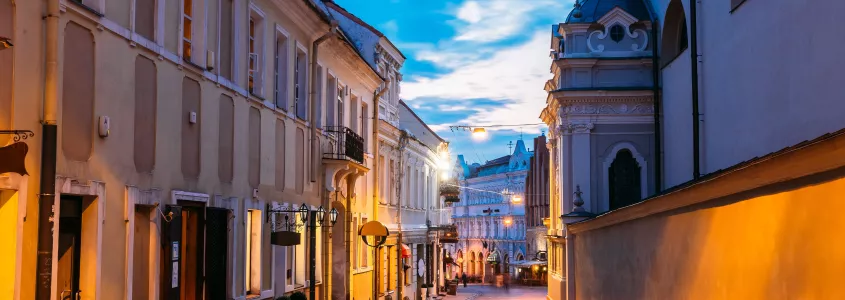
The Covid-19 pandemic requires the adoption of measures by the authorities to curb the spread of the virus and protect the health of citizens. To achieve this objective, in Spain, the government has had to apply the provisions of art. 116 of the Constitution, which regulates the state of alarm decree, which entails the restriction of fundamental rights, such as the right to freedom of movement.
Given the exceptional measures that such a legal situation entails, they can only be adopted by the government, as established in article 116.2 of the Constitution, which expressly states: "The state of alarm shall be declared by the Government by means of a decree agreed in the Council of Ministers for a maximum period of fifteen days, reporting to the Congress of Deputies, which shall meet immediately for this purpose and without whose authorisation this period may not be extended. The decree shall determine the territorial scope to which the effects of the declaration extend".
According to Organic Law 4/81 (which regulates states of exception, alarm and siege), during an alarm the government can restrict the free movement of people and vehicles during the stipulated hours, as well as adopt other measures, such as requisitioning goods or temporarily occupying industries.
By means of RD 463/2020 this state was established in March, which entailed the adoption of the confinement of the entire population, at national level and the suppression of the civil right of free movement, except for the following exceptions: "Acquisition of food, pharmaceutical products and basic necessities, attendance at health centres, services and establishments, travel to the workplace to carry out their work, professional or business services, return to their usual place of residence, assistance and care for the elderly, minors, dependents, people with disabilities or especially vulnerable people, travel to financial and insurance institutions, travel due to force majeure or a situation of necessity, any other activity of a similar nature that must be done individually, unless accompanied by people with disabilities or for other justified reasons".
The circulation of private vehicles was only permitted for the performance of permitted activities.
Other measures, apart from the limitation of free movement, were the closure of non-essential establishments and activities (such as restaurants, bars, cinemas, discotheques, cafés, shops and retail premises), with the exception of food and basic necessities establishments.
It also decreed the suspension of face-to-face educational activities and the closure of sports, cultural and leisure facilities.
From 28 April 2020, the deconfinement began gradually until 21 June, when the last extension of the alarm period came to an end and, with it, the limitation of citizens' rights.
Although the measures adopted in March led to a reduction in coronavirus infection. However, the negative evolution of Covid-19 and the increase in the number of infections, which rose again from September, in the so-called "second wave", made it necessary to adopt new measures, which have been regulated in the declaration of a new alarm situation, established in Royal Decree 926/2020, of 25 October 2020, and whose duration is expected to last until 9 May 2021. On this occasion, the measures adopted are less restrictive and the alarm had to be declared compulsorily in order to provide legal cover for the limitation of mobility during the night and the perimeter closure of the territories.
On this occasion, unlike what happened in March, it is the autonomous communities, and not the government, that are responsible for enforcing compliance with the new alarm situation, which entails the following limitations:
• The so-called "night-time curfew". Although this legal figure is not expressly included as such in our legal system, it is similar to the restriction on night-time mobility imposed on citizens at national level (except for the Canary Islands) from 11 p.m. to 6 a.m. Each autonomous community may bring the curfew forward to 10 p.m. or delay it to midnight. Each autonomous community may bring forward the start of the curfew to 10 p.m. or delay it to midnight. It may also bring forward the end of curfew to 05.00 hours or delay it until 07.00 hours.
The exceptions to night-time mobility, as established by Royal Decree 926/2020 of 25 October, are as follows: "During the period between 23:00 and 06:00 hours, persons may only circulate on public roads or spaces for public use to carry out the following activities: purchase of medicines, health products and other essential goods, attendance at health centres, services and establishments, attendance at veterinary care centres for emergency reasons, fulfilment of work, professional, business, institutional or legal obligations, return to the place of habitual residence after carrying out some of the activities envisaged in this section, assistance and care for the elderly, minors, dependents, disabled or especially vulnerable persons, due to force majeure or a situation of need, any other activity of a similar nature, duly accredited, refuelling at petrol stations or service stations, when necessary to carry out the activities foreseen in the previous paragraphs".
• Entry into and exit from each territory. Entry into and exit from each territory is left in the hands of the President of each of the Autonomous Communities, who may limit "the entry and exit of persons from the territory of each Autonomous Community and each city, except for those journeys, duly justified, which occur for any of the following reasons: attendance at health centres, services and establishments, fulfilment of work, professional, business, institutional or legal obligations, attendance at university, teaching and educational centres, including nursery schools, attendance and care of the elderly, minors, dependents, disabled persons or particularly vulnerable persons, travel to financial and insurance institutions or refuelling stations in neighbouring territories, required or urgent actions before public, judicial or notarial bodies, renewals of permits and official documentation, as well as other administrative procedures that cannot be postponed, taking exams or official tests that cannot be postponed, due to force majeure or a situation of necessity or any other activity of a similar nature, duly accredited".
• Possibility of limiting meetings to six persons. The establishment of this limitation will also be the responsibility of each autonomous community, which will be able to limit meetings in public places to a maximum of six people when the necessary safety distance to prevent contagion cannot be guaranteed.
• Closure of the autonomous communities. Each autonomous community will be able to confine the entire territory or smaller territorial units, limiting the entry and exit of citizens by means of perimeter closures, "with the aim of substantially reducing the mobility of the virus", with the following exceptions " attendance at health centres, services and establishments; fulfilment of work, professional, business, institutional or legal obligations; attendance at university, teaching and educational centres, including nursery schools, return to the place of habitual or family residence, assistance and care for the elderly, minors, dependents, disabled persons or particularly vulnerable persons, travel to financial and insurance institutions or refuelling stations in neighbouring territories; required or urgent actions before public, judicial or notarial bodies, renewals of permits and official documentation, as well as other administrative procedures that cannot be postponed, taking exams or official tests that cannot be postponed; due to force majeure or a situation of necessity or any other activity of a similar nature, duly accredited".
Failure to comply with the restriction measures imposed or resistance to the orders of the competent authority may be punished in accordance with the law, under the terms set out in Article 10 of Organic Law 4/1981 of 1 June 1981.

"Anywhere in Spain"
With our online appointment system you will have immediate advice without the need for face-to-face visits or travel.
One of our lawyers specialized in your area of interest will contact you to formalize an appointment and make your consultation by video call.

Add new comment